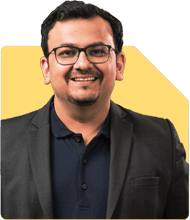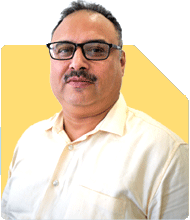Khevna Shah | Answer |Ask -Follow
HR Expert - Answered on Feb 06, 2023
... more

Hi Khevna, From an HR perspective, does it pose an issue or conflict of interest for my boss and me to start an unrelated side business together (a totally different industry than our place of employment, never using work resources for this)?
You may like to see similar questions and answers below
Mayank Rautela | Answer |Ask -Follow
HR Expert - Answered on Dec 05, 2022
Ankit Kedia | Answer |Ask -Follow
Start-up Expert - Answered on Feb 16, 2023
Abhishek Shah | Answer |Ask -Follow
HR Expert - Answered on Jul 17, 2023
Mayank Rautela | Answer |Ask -Follow
HR Expert - Answered on Feb 18, 2024
Baqar Iftikhar Naqvi | Answer |Ask -Follow
Start-up Mentor - Answered on Feb 19, 2024
Ulhas Joshi |280 Answers |Ask -Follow
Mutual Fund Expert - Answered on Dec 05, 2025
Dr Dipankar Dutta |1835 Answers |Ask -Follow
Tech Careers and Skill Development Expert - Answered on Dec 04, 2025
Ravi Mittal |676 Answers |Ask -Follow
Dating, Relationships Expert - Answered on Dec 04, 2025
Anu Krishna |1745 Answers |Ask -Follow
Relationships Expert, Mind Coach - Answered on Dec 04, 2025
Anu Krishna |1745 Answers |Ask -Follow
Relationships Expert, Mind Coach - Answered on Dec 04, 2025
Mayank Chandel |2562 Answers |Ask -Follow
IIT-JEE, NEET-UG, SAT, CLAT, CA, CS Exam Expert - Answered on Dec 04, 2025
Mayank Chandel |2562 Answers |Ask -Follow
IIT-JEE, NEET-UG, SAT, CLAT, CA, CS Exam Expert - Answered on Dec 04, 2025
Mayank Chandel |2562 Answers |Ask -Follow
IIT-JEE, NEET-UG, SAT, CLAT, CA, CS Exam Expert - Answered on Dec 04, 2025
Mayank Chandel |2562 Answers |Ask -Follow
IIT-JEE, NEET-UG, SAT, CLAT, CA, CS Exam Expert - Answered on Dec 04, 2025
Mayank Chandel |2562 Answers |Ask -Follow
IIT-JEE, NEET-UG, SAT, CLAT, CA, CS Exam Expert - Answered on Dec 04, 2025



























